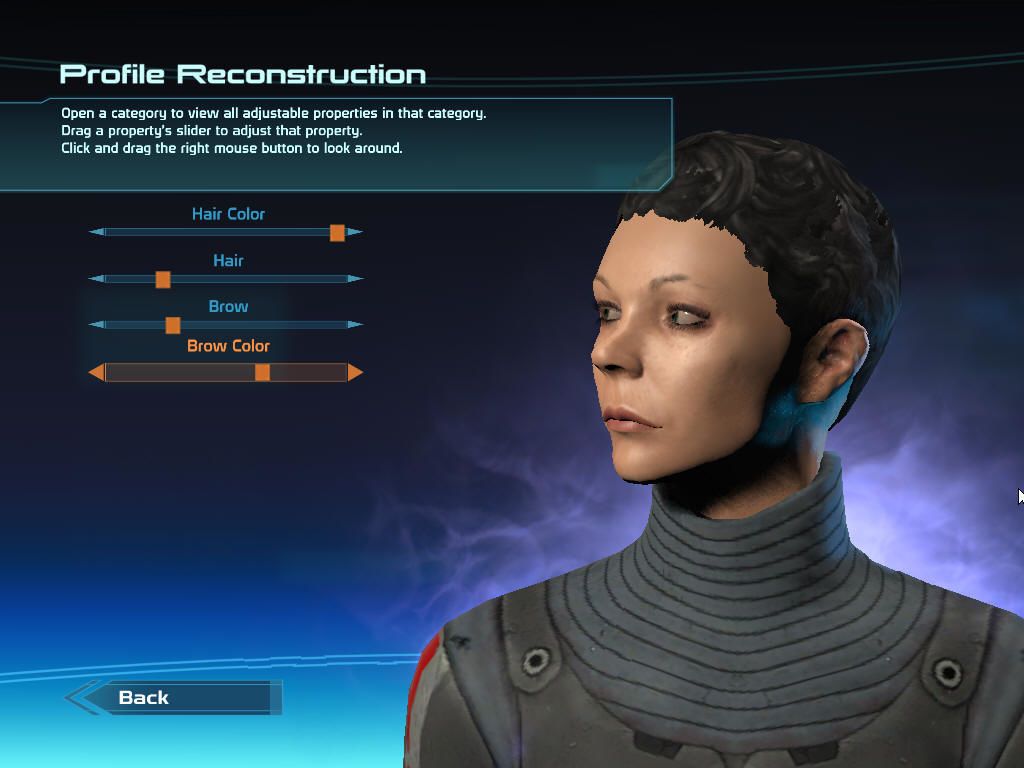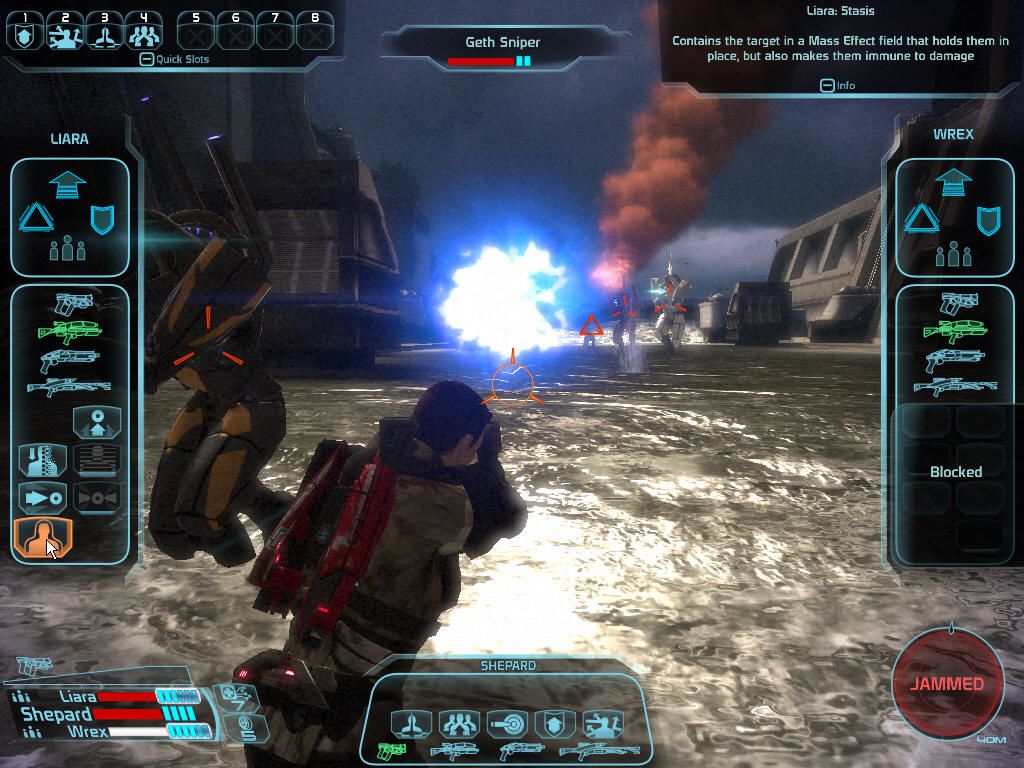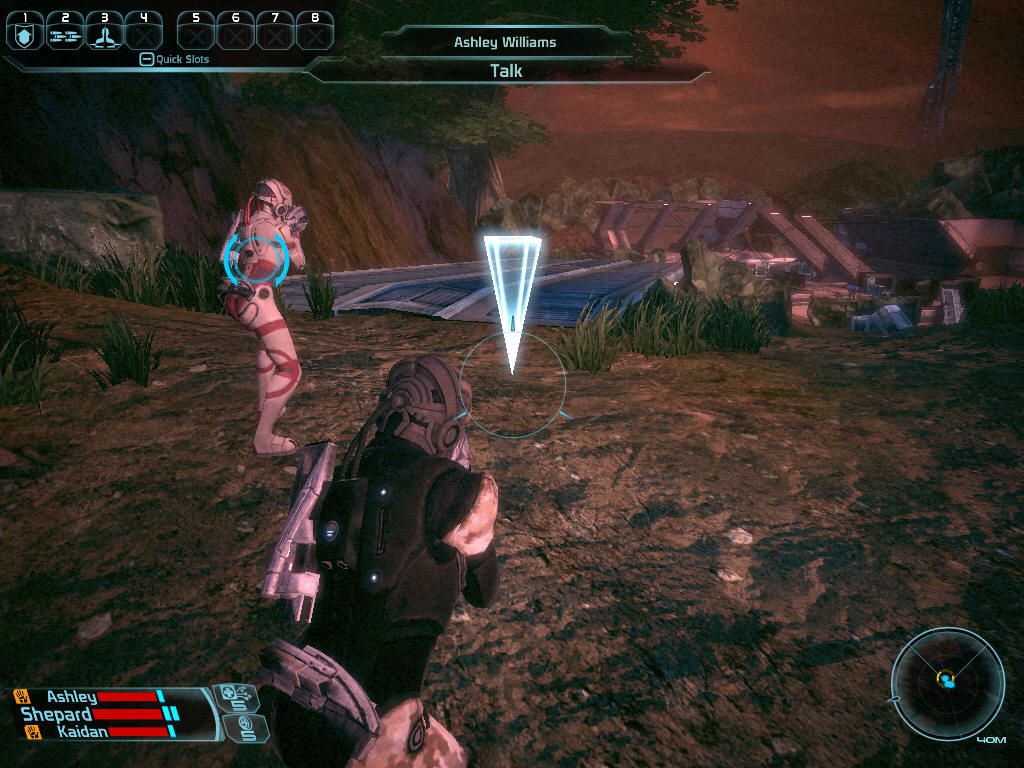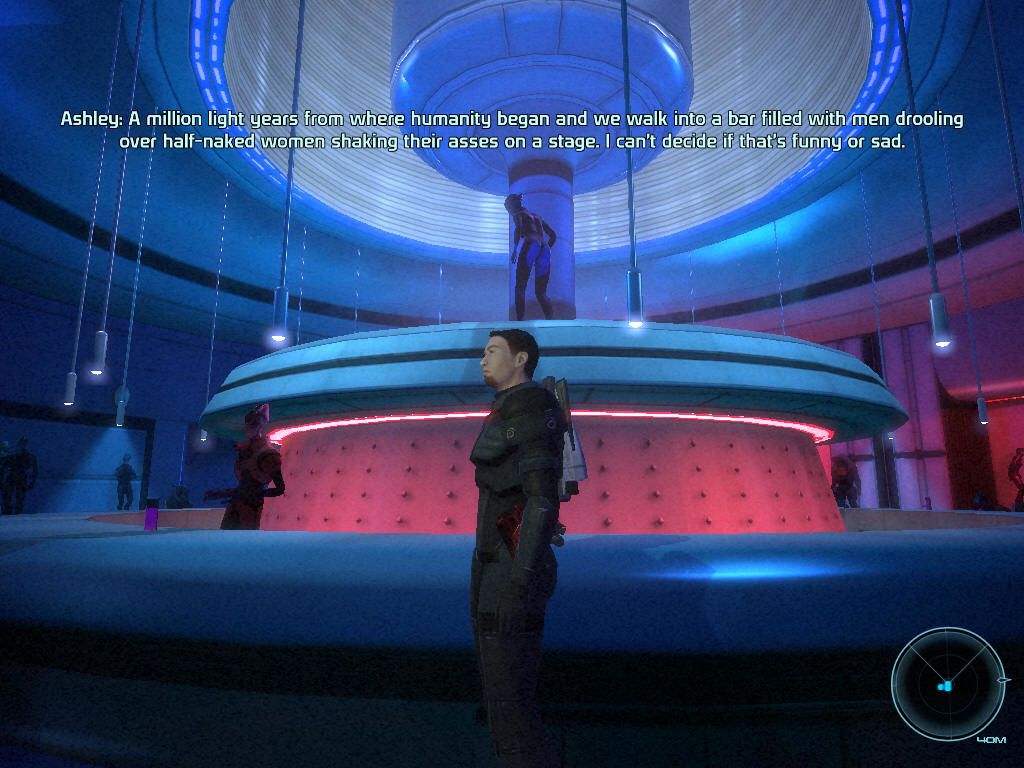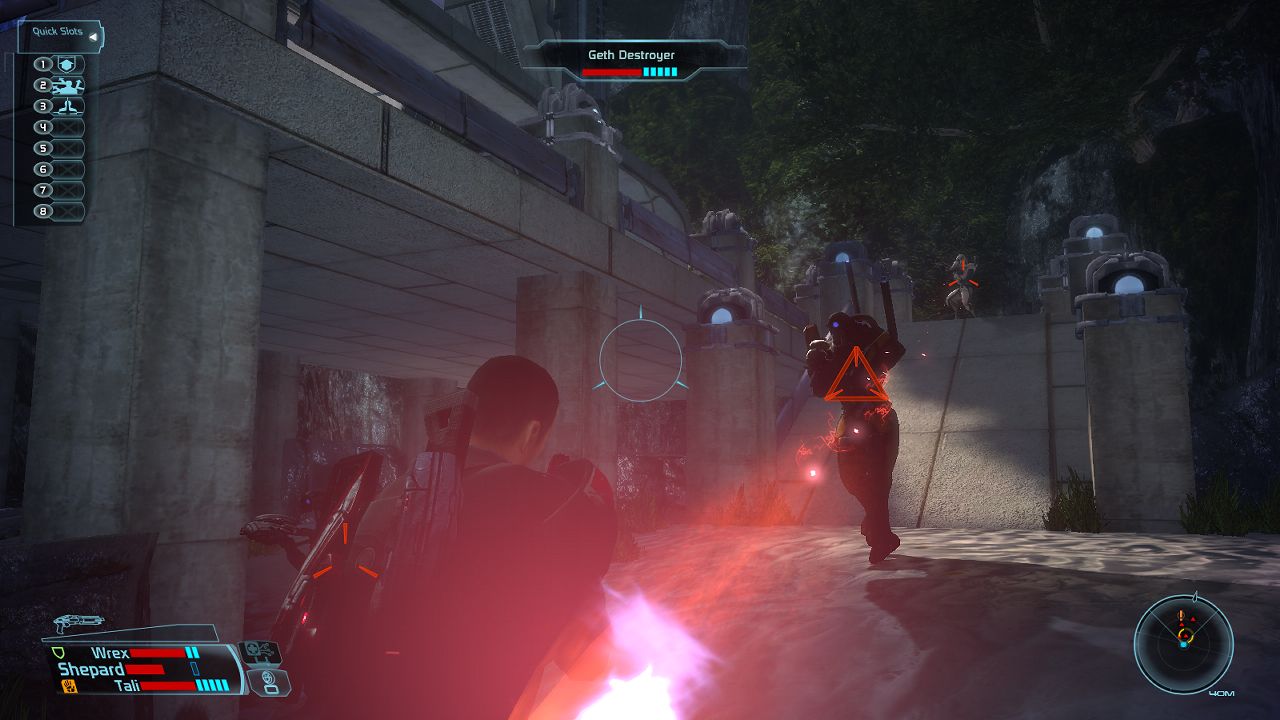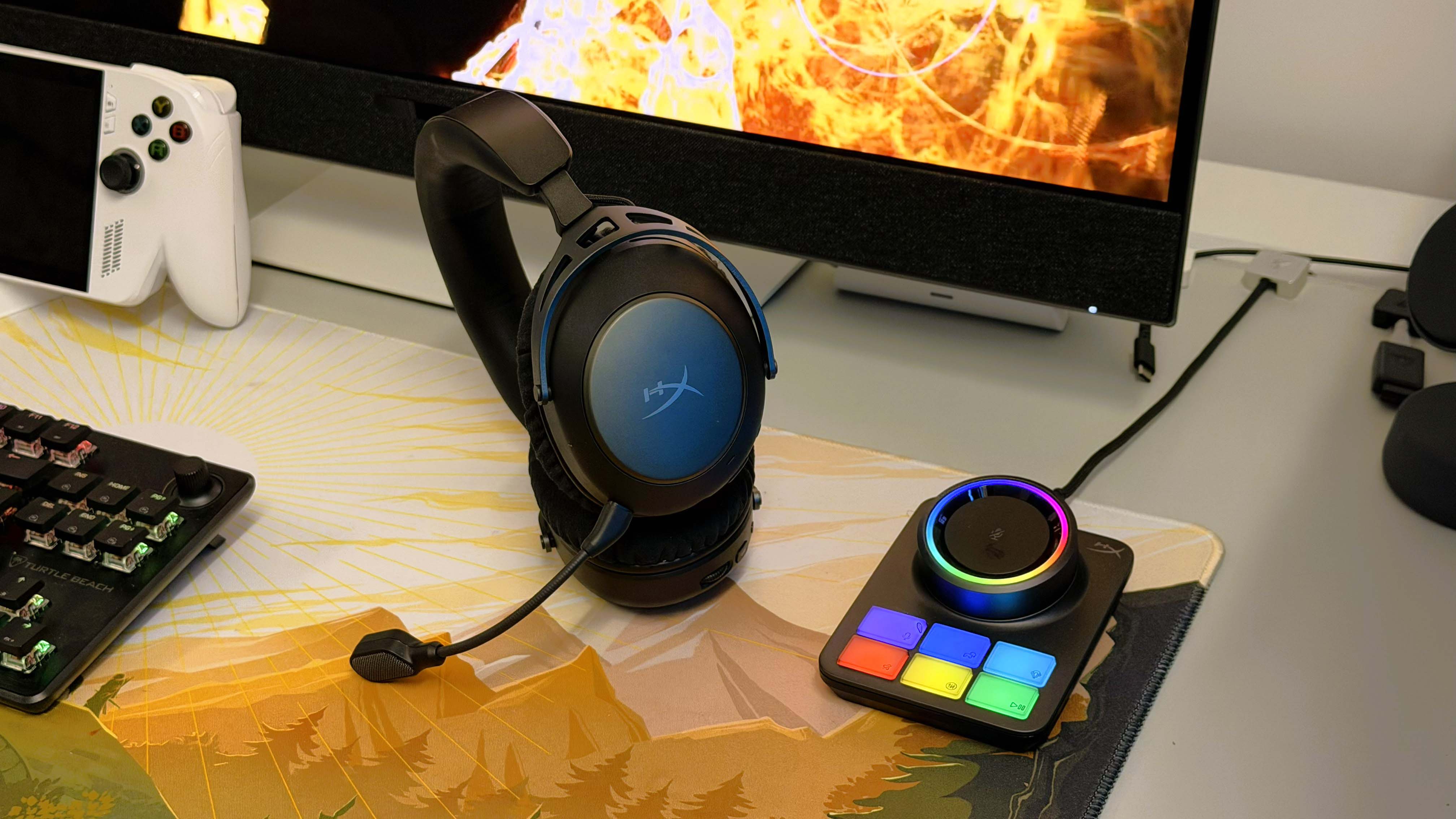How the Mass Effect trilogy evolved
A moment of Bioware brilliance that kicked off an epic adventure across the stars.
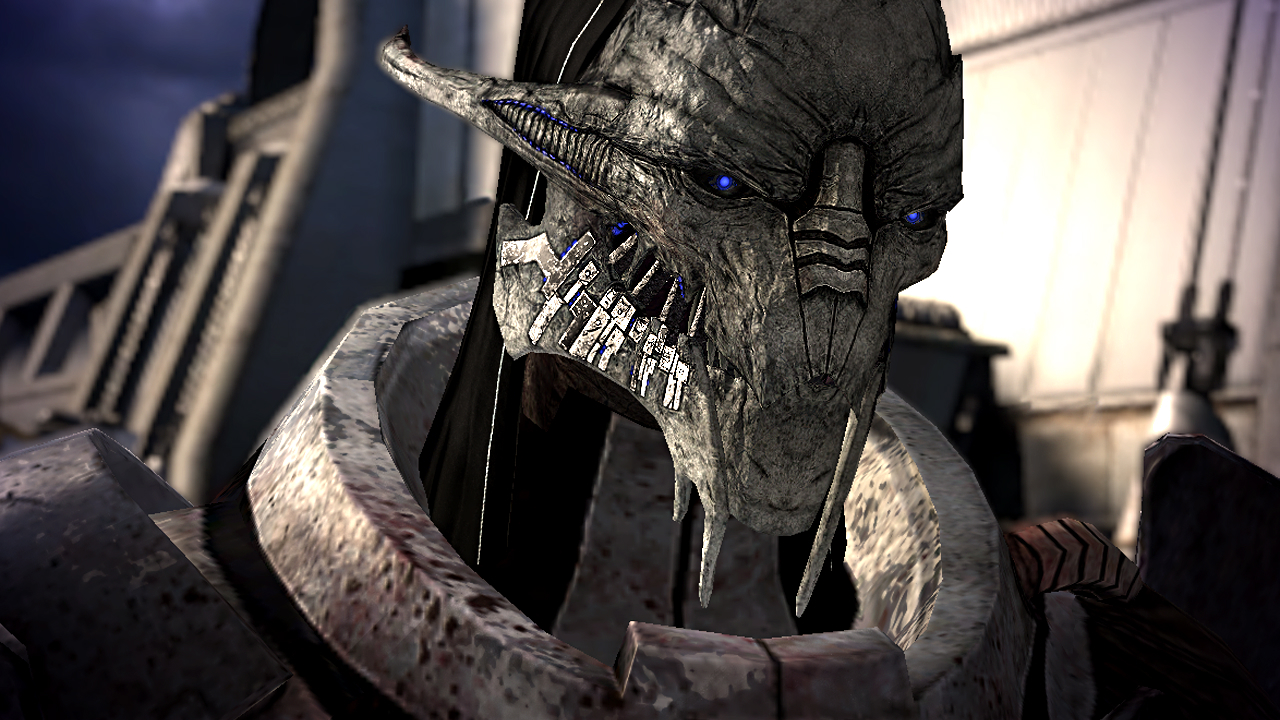
In 2017 we ran this retrospective on the Mass Effect series, looking back at how it evolved across three games.
Look, for a moment, try to forget That Ending. Yes, it was disappointing, but if there’s a scene that truly marked the end of BioWare’s original space trilogy in suitably tear-jerk fashion, it’s the one that capped off its final DLC, Citadel. One last night of partying before the end. A moment of reflection before diving into oblivion. Commander Shepard, flanked by a team of misfits forged by fire into a family, stands for a moment by their ship to consider the future. "We’ve had a good ride," the closest says. "The best…" replies Shepard, taking one last chance to appreciate it.
There's a lot to appreciate.
Out of this world
Mass Effect remains arguably BioWare’s tightest and most successful series, and one that’s as much a departure from the company’s comfort zone as it was a natural continuation of its direction back in the mid-2000s. Knights of the Old Republic in 2003 was an attempt to make RPG combat especially look cinematic and exciting despite being overtly based on D&D rules and not afraid to drop terms like THAC0 in polite company, while Jade Empire attempted to both look like a Wuxia movie and combine arcade action with RPG stats and storytelling.
Dragon Age: Origins would re-target the fans won over by Baldur’s Gate and Neverwinter Nights—at least for one game, before looking to a wider audience. Mass Effect meanwhile would start out by looking to the future and an AAA audience up for an epic adventure, but that didn’t want want to roll dice or juggle a million stats just to kick a little alien ass. It was still an RPG at heart, but a considerably faster-paced one than most of the audience was used to.
The premise is a simple one. Humanity is very much the newcomer in the intergalactic community, and not particularly trusted—not least because our first contact with the avian Turian race led to what became known as the "First Contact War." Ouch. Luckily, since then things have improved, and we’re bopping around the galaxy to explore and colonise with the help of a network of ancient relays and their hub, the Citadel. Now, we’re ready to make our next big step towards legitimacy with the appointment of our hero Commander Shepard as the first human Spectre—a space-cop with pretty much unlimited authority and autonomy, if not apparently a regular pay cheque.
Good timing, too, as a Lovecraftian threat from the darkest parts of space—the Reapers—is about to threaten the entire galaxy… and nobody believes they even exist.
Keep up to date with the most important stories and the best deals, as picked by the PC Gamer team.
Action stations
The first game was a big hit, but a distinctly flawed diamond. Many of its quirks would later become in-jokes, like the endless elevator rides used to poorly hide new areas loading in, or the fun-vacuum Mako rover that made exploring new planets about as much fun as getting a root canal on a Wurlitzer.
By far the biggest weakness was combat. Much like KOTOR before it, it was caught between its RPG core and Hollywood longings, only this time with the RPG side buckling under the pressure.
The result was a game where combat was something of a chore—not much fun, mechanically fiddly, and with enemies slightly dumber than toast. Later games would fix this by doubling-down, simplifying even further, and effectively becoming an all-out third-person shooter broken up with extended conversations and social zones. It made for some awkward lore moments, like guns that canonically had effectively unlimited ammo now conveniently needing pick-ups, but no matter.
Luckily, the world that BioWare created immediately established itself as a place worth dealing with all this and more to experience. On a broad level, It’s every SF trope mixed together, from the sexy all-female asari race to the central plot about wise precursors and enemies from beyond the stars. We’ve seen more of this before, in some form at least, with Mass Effect’s universe owing a particular debt to Babylon 5 in terms of both setting and aesthetic, and Alistair Reynolds’ Revelation sites for big plot.
Zoom in, though, and BioWare’s universe is stuffed with originality, with humour, with sharp writing, great characters, and relationships that aren’t just beautifully written, but take full advantage of the trilogy format to grow.
Your initial team-mates, Kaidan and Ashley, aren’t perpetually locked in your shadow, and have their own military careers going on. By the time Shepard and his/her Turian BFF Garrus take time out to go target shooting in Mass Effect 3, you’ve been part of that relationship and emotionally invested in what happens next in their romance or friends for the best part of 60 hours and several years of actual game. Likewise, you’ve seen Tali’Zorah go from scared child on the run to military badass and potential saviour, Liara T’Soni from simple archeologist into the all-powerful Shadow Broker, Miranda from a cold human supremacist with a vacuum packed bottom into a defrosted ice-princess with a vacuum packed bottom, and Jacob Taylor… well, Jacob is there too.
While not all of these plots start in the first game, it’s hard to look back on the first Mass Effect without factoring in what everything became. Rather than piling on new lore with each new instalment, BioWare instead chose to dig a bit deeper. You hear about the quarian fleet in the first game, for instance, but it’s not until the second that you get to pay it a visit. Likewise, the alien homeworlds are saved for the third game where their destruction can feel meaningful, for the same reason that the Star Trek reboot opted to blow up Vulcan rather than some random little world in the beta quadrant.
That’s not including some of the bigger decisions that don’t simply affect the fate of the galaxy, but some of your best friends. Where does loyalty to them end and the needs of the wider universe begin? Can you risk starting a galactic war in the name of ending one? Who do you pick when both sides have equal value to their claim, but a classic Star Trek diplomatic situation is off the table—at least in your current run through things, based on dozens of compounding choices.
Big decisions
While big decisions are part and parcel of many an RPG, few have done a better job of creating thought-provoking ones where there may be no ‘right’ answer, or a past decision may have shifted things dramatically between games.
The two biggest in the original Mass Effect are whether or not to release an alien threat called the Rachni, which seems reasonable enough, and which of your starting crew members will die on the planet Vermire. There’s no getting around making that choice, and whichever you pick to make the sacrifice is gone for the rest of the series, along with hope of slipping in a quick romance.
While covering it properly means skipping ahead a little, the biggest example set up in the first game is the krogan genophage. Krogan are a species of incredibly fast, territorial, aggressive breeders that once threatened the galaxy simply by existing. To deal with this, another race created the genophage as a viral way to curtail their overexpansion—specifically by rendering most of them sterile. Unfortunately, that just means they're now dying off, and unsurprisingly pissed with the rest of the galaxy.
In Mass Effect 3, you have the chance to fix things… but will that just doom the galaxy down the line? Making things more interesting is that at this point in the series they can have one of two leaders, former party member and rough diamond with hidden depths Urdnot Wrex, or if he’s dead, his more aggressive cousin Wreav. Neither is exactly a dove, but Wreav is unquestionably the more hawkish and vengeful of the pair, and longs to harness krogan resentment to launch a war against their oppressors.
The catch is that long before any of this, still in the first game, Wrex discovers that the villain, Saren, may have an outright cure and he’s willing to kill Shepard over it. How many other games introduce plot choices and dilemmas that take five years to finish finally playing out?
While inevitably the nature of the story means you don’t necessarily face the true consequences, the games do a fantastic job of both setting up the stakes for these beyond the pragmatic ‘get 25 War Assets’ change by showing every side of it in characters that you’ve hopefully come to respect and like. Whether galactic scale or personal, every quest matters deeply to someone, and usually characters you’ve known and hung out with for at least a couple of games by the point that their big quest starts. Everyone comes to the mission with baggage, and how you deal with it can be as important as any action bit.
My favourite Shepard
At the heart of the group though is always Commander Shepard, arguably one of BioWare’s greatest inventions since MDK 2 brought us atomic toast. Rarely has a character felt so much like a collaboration between player and developer, with Shepard coming across as a character with weight and presence in the universe as a hero, as a Spectre, and as a beacon of hope, while still leaving key decisions like origin, morality and romance and opinions to be driven by player choice.
The female variant in particular immediately won hearts thanks to Jennifer Hale’s fantastic voice acting and instant control of any military situation, kept relatable and grounded with a dry sense of humour—and human failings like romantic inexperience and exquisitely terrible dancing.
Her popularity really caught BioWare by surprise, especially as statistically most players went with the male Shepard. Despite BioWare’s history of being one of the better/more forward-thinking companies when it comes to sexual politics, Mass Effect 2 in particular is full of unfortunate animations that make it obvious that all the motion capture was done for a male character, from the way that Shepard sits while wearing a dress to the position and coding of characters snuggling in the romances.
Likewise, when it came to the lack of gay relationships, BioWare co-founder Ray Muzyka defended their absence by saying that Shepard was ‘a defined character with certain approaches and world views’, forgetting that in addition to the chance to sleep with several asari, the—ahem—booby prize for not getting into a real relationship is to have Shepard’s assistant Kelly do more than feed her fish. It took until Mass Effect 3 for the female Shepard to even get a custom face rather than just an editor default, which looked terrible next to the ‘standard’ Shepard, and to unlock the ability to play for both teams.
While in retrospect this might seem ‘typical BioWare’ it’s worth remembering that Mass Effect had its share of controversy back in the day. These were ridiculous at the time, never mind now, but back in 2008 pundits were coming up with lines like—this is 100% real—"And because of the digital chip age in which we live—'Mass Effect' can be customized to sodomize whatever, whoever, however, the game player wishes."
The fact that the most you got to see was one short sex scene featuring a little side-boob or a blue bottom moving up and down for a couple of seconds was immaterial, mostly because the critics subsequently admitted to not having actually seen the game before railing about it. Fox News guest Cooper Lawrence was unamused when gamers took to Amazon to give her latest book the same treatment, commenting "In hindsight, I would have liked to have had the opportunity to play this game before appearing." What an intriguing idea!
You know you’re onto a loser when even anti-gaming activist Jack Thompson rolls his eyes and calls it a contrived conspiracy. However, as it would continue to do with Dragon Age 2 and 3, BioWare pushed back rather than folding under the pressure, greatly helping to normalise adult content in games intended for adults, paving the way for more ambitious mature content in games like The Witcher 2/3 (both of which were a far cry from the original game and its tacky sex cards) and Dragon Age Inquisition.
Still, even Mass Effect 3 had characters chastely taking showers in their underwear. Just in case.
All around the universe
Awkward bathing aside, the Mass Effect series is arguably most notable for BioWare’s willingness to go outside its comfort zone and explore new ideas. The first game, for instance, is functionally the same design as its previous RPGs—four worlds, each with a lost Thing on it. Mass Effect 2 goes more non-linear with most of the game being about assembling a team in bite-sized, punchy missions designed to showcase each in turn and then earn their loyalty. Mass Effect 3 wraps the individual missions up into a meta game called ‘Galaxy At War’, trying to make it feel like a concerted campaign against an unstoppable enemy that demands the feuding races finally start to work together towards an escalating common goal.
After all, in the first game, it only takes one Reaper by the name of Sovereign to almost bring the galaxy to its knees. In the third, you’re surrounded by them and their Inception Horns Of Doom, without ever crossing the Voyager Borg threshold where they cease being scary.
Indeed, the more you play, the more it becomes clear that their true power is their ability to cloud and control minds—Indoctrination—versus firepower. There’s even a fan theory that Shepard ultimately loses the battle—that what we see as an intentionally bland series of final battles and a Final Choice that boils down to little more than picking between red, green and blue tinted finales, is actually just their mind breaking under the psychological pressure. It’s not completely impossible (though the more accepted reason for the bad ending is that it was rewritten at the last minute) but it is the kind of stretch that normally requires a Stretch Armstrong doll and a few minutes in the oven.
Crappy as those five minutes in some sixty hours are though, obsessing over them does Mass Effect a huge disservice. The rest of that time is pretty much non-stop action, ideas, refinements and cinematics that continually reinvents itself and tries to push the state of the art.
Did all these ideas work? No. Galaxy at War in particular was much criticised prior to release for seemingly demanding solo players jump into multiplayer to get high enough scores for a good ending (not true). Most of the DLC was distinctly disposable, with the exception of Lair of Shadow Broker and Citadel, and perhaps Leviathan.
The less said about the assassin Kai Leng, the better, though we hope he finds his way back to his home anime dimension as soon as possible.
But to think back on Mass Effect shouldn’t be to focus on its flaws, but rather the warmth of its characters, the excitement of its set-pieces, the scale of its universe, and the sheer passion with which BioWare brought it to our screens and kept the momentum going for years. It’s a truly magnificent trilogy, a highpoint for interactive SF, and even though it started on slightly wobbly foundations, there's no arguing that it's not a hell of a ride.
